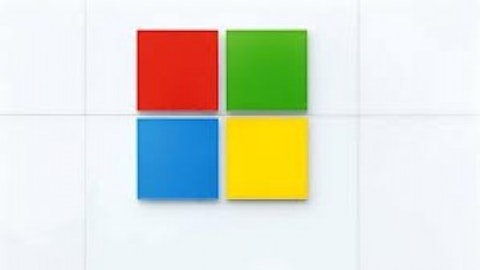In 2004, Congress passed the American Jobs Creation Act, a bill full of tax policy changes intended to lower tax burdens for a variety of domestic industries. Inside the bill was a big provision, which enabled companies to bring money home to the United States at a tax rate of 5.25%.
Allowing U.S.-based companies to bring money home at a discount led to the flow of $312 billion back to American shores. Much of that cash, according to the National Bureau of Economic Research, was later paid out in the form of dividends and stock repurchase plans. This is one of the many reasons why I believe the “great repatriation” is much bigger for investors than the so-called “great rotation.”
In truth, the last repatriation holiday didn’t lead to more domestic spending in the United States insofar as industrial investment. That part of the American Jobs Creation Act may have missed its mark.
But no matter the reason, whether to spur job growth or to simply allow investors to get their hands on the earnings of America’s companies, a repatriation holiday looks more promising than ever.

Foreign cash is making headlines
The last time a repatriation tax break received any attention in Congress was in 2011. At the time, Apple Inc. (NASDAQ:AAPL) had only $12 billion overseas, Google Inc (NASDAQ:GOOG) had roughly $17 billion, and Microsoft Corporation (NASDAQ:MSFT) had $29 billion.
Today, those numbers are much higher. As of March 30, 2013, Apple Inc. (NASDAQ:AAPL) had $102 billion waiting to be repatriated. Google Inc (NASDAQ:GOOG) has $31.1 billion. Microsoft Corporation (NASDAQ:MSFT) has $66 billion sitting on foreign shores.
This isn’t the full extent of the enormous amount of cash held away from American shores. In fact, according to FactSet, the balance of cash on non-financial companies in the S&P 500 is now up to $1.27 trillion. Much of that cash is in foreign lands, presently shielded from American tax policy. In 2005, at the time of the last tax holiday, cash on S&P 500 balance sheets sat at $900 billion.

Apple’s move places pressure on lawmakers
Apple Inc. (NASDAQ:AAPL)’s move to borrow $17 billion is good for all investors, whether one has a position in Apple or not.
First, it shows that American corporations can use their foreign cash without paying Uncle Sam by tapping the debt markets to borrow against cash balances at presently low interest rates.
Second, it shows that, repatriation or not, corporate profits can still flow to shareholders. Corporate profits should flow to shareholders in the form of repurchases and dividends. Criticism of the 2005 repatriation holiday is misguided.
Finally, it incentivizes action on behalf of America’s largest companies to start pushing for repatriation. Apple Inc. (NASDAQ:AAPL) now has its first, though small, maturity walls. The company has a mix of three-, five-, ten-, and thirty-year debt, the first of which will mature in 2016. The 2016 maturity coincides with a Google Inc (NASDAQ:GOOG) bond paying a 2.125% coupon, and a Microsoft Corporation (NASDAQ:MSFT) bond maturing in September 2015.
Conveniently, these three issues mature at the same time, a few congressional elections away, and at the time a new President will be picked in 2016 to be sworn in January 2017. Most importantly, these votes will come at a time when more than 20,000 baby boomers are retiring each and every day. Higher stock market valuations would certainly be a boon to anyone sitting on the retirement fence.
Lower taxes on the horizon?
The United States could afford temporary and permanent cuts to the federal corporate income tax. A letter from several top CEOs to Congress noted that at 35%, the United States’ corporate income tax rate was 10% higher than the OCED average. It is 15% higher when the full cost of state and local taxation is also included.
By now it shouldn’t be news that American corporate tax rates are the most punishing in the developed world.
Those who wish to play on lower taxes have plenty of opportunity. Cash rich Apple Inc. (NASDAQ:AAPL), Microsoft Corporation (NASDAQ:MSFT), and Google Inc (NASDAQ:GOOG) would benefit tremendously from a one-time repatriation holiday as their billion-dollar bank accounts come back home. Apple Inc. (NASDAQ:AAPL) would stand to save as much as $30 billion in taxes given its current cash on hand, Microsoft Corporation (NASDAQ:MSFT) would save as much as $20 billion, and Google would come up with a $10 billion savings.
A repatriation might even expedite corporate plans to return cash to shareholders. In 2004, Microsoft Corporation (NASDAQ:MSFT) paid a dividend equal to $3.08 per share (a $3 special dividend plus the regular 8 cent quarterly dividend) on news of repatriation.
American companies want to pay their shareholders back. Now Washington D.C. just needs to let them.
The article The U.S. Needs a Repatriation Holiday originally appeared on Fool.com is written by Jordan Wathen.
Copyright © 1995 – 2013 The Motley Fool, LLC. All rights reserved. The Motley Fool has a disclosure policy.


